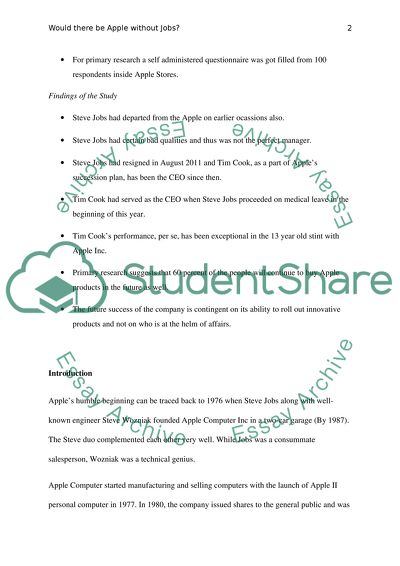Cite this document
(“Would there be Apple without Jobs Essay Example | Topics and Well Written Essays - 3250 words”, n.d.)
Retrieved from https://studentshare.org/marketing/1393315-would-there-be-apple-without-jobs
Retrieved from https://studentshare.org/marketing/1393315-would-there-be-apple-without-jobs
(Would There Be Apple Without Jobs Essay Example | Topics and Well Written Essays - 3250 Words)
https://studentshare.org/marketing/1393315-would-there-be-apple-without-jobs.
https://studentshare.org/marketing/1393315-would-there-be-apple-without-jobs.
“Would There Be Apple Without Jobs Essay Example | Topics and Well Written Essays - 3250 Words”, n.d. https://studentshare.org/marketing/1393315-would-there-be-apple-without-jobs.


